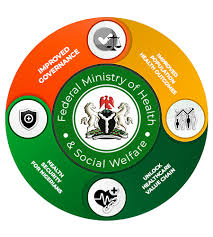Nigeria – Experts Warn Against Risks Of Children Consuming Undercooked Chicken Intestines

By Onoja Baba, Abuja, Nigeria
Health experts have voiced concerns about the potential dangers of children consuming undercooked chicken intestines, but not without controversy.
Dr. Ngozi Obiora, a consultant gastroenterologist and surgeon at the Epe General Hospital, Epe, Lagos, in an interview with the media recently highlighted that undercooked chicken intestines can pose significant health risks, particularly due to parasitic worms and bacteria.
She warns that insufficiently cooked chicken intestines may harbor parasites such as roundworms or tapeworms, potentially leading to serious infections.
She said Campylobacteriosis, a zoonotic disease transmitted through undercooked poultry, is also a concern, with symptoms leading to diarrhea, cramping, and fever.
Dr. Obiora advises thorough cooking of poultry to an internal temperature of 165°F (74°C) to ensure the elimination of harmful pathogens and prevent cross-contamination in the kitchen.
She emphasizes that children, with their developing immune systems, are particularly vulnerable to these infections.
Professor Godswill Nnaji, a consultant family physician, challenges the assertion that chicken intestines are a direct cause of worm infestations.
He argued that while bacteria and parasites are indeed present in chicken intestines, there is insufficient scientific evidence to conclusively link them to specific health outcomes.
According to Nnaji, more peer-reviewed research is needed to establish a direct cause-and-effect relationship between undercooked chicken intestines and parasitic infections.
While some doctors stress the health risks associated with such practices, others question the scientific validity of these claims.
This debate underscores the broader issue of food safety and the need for balanced research and evidence-based guidelines.
As economic challenges force some parents to seek affordable protein sources like chicken intestines, the discussion highlights the need for both caution and ongoing scientific inquiry to ensure public health safety.
PHOTO CREDIT: YULIA GUSTERINA/GETTY IMAGES
categories
recent posts





